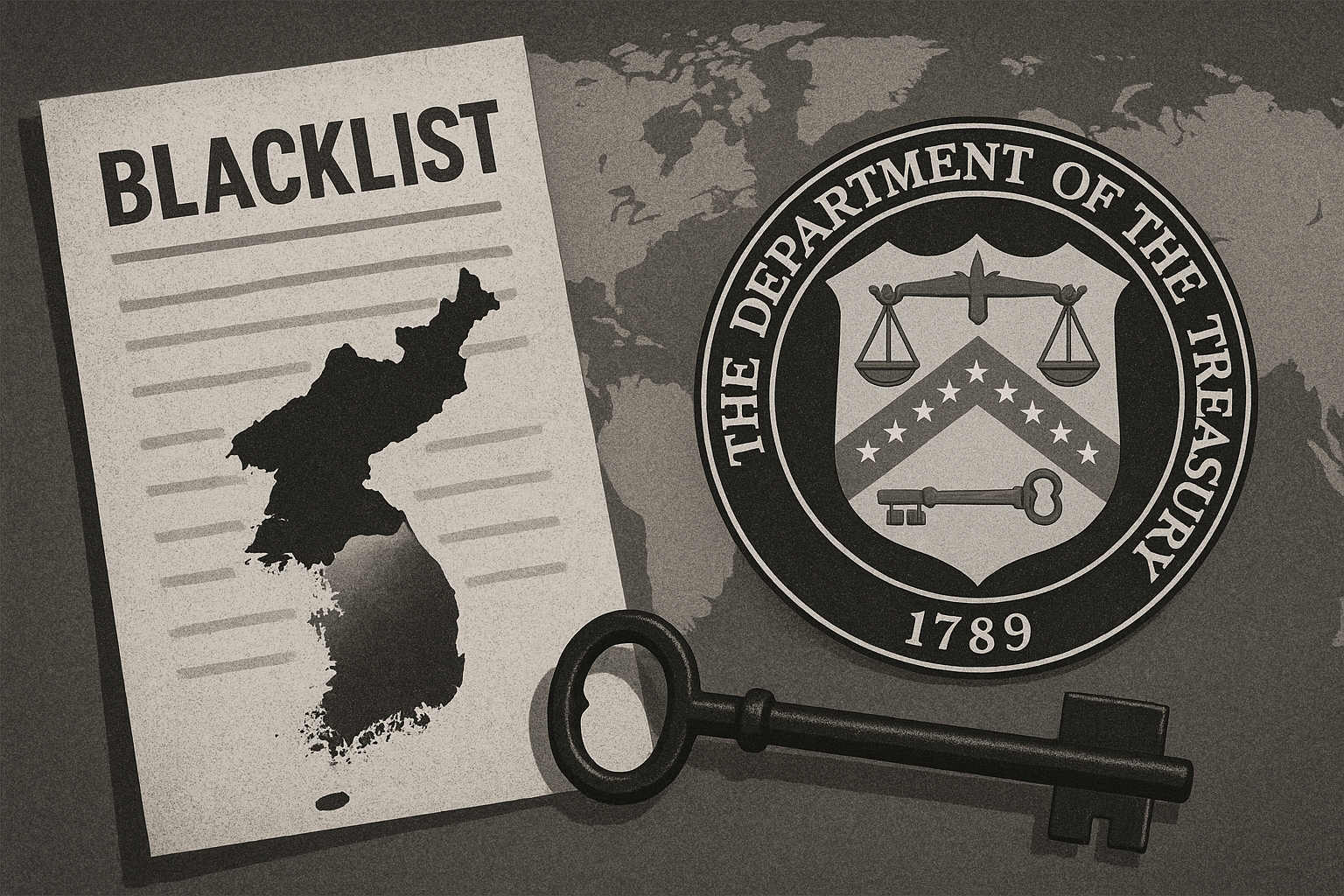97% of the crypto stolen in 2022—about $1.7 billion—was traced back to North Korean–linked groups, according to Chainalysis. Let that sink in for a second.
Here's What Actually Happened
On Tuesday, the U.S. Treasury’s Office of Foreign Assets Control (OFAC) slapped fresh sanctions on a North Korean citizen named Chae Hyun-il. Treasury says Chae helped funnel fellow DPRK IT workers into remote software gigs overseas, all while quietly funneling paychecks—and sometimes access tokens—back to Pyongyang’s Reconnaissance General Bureau. Think of it as state-sponsored staff aug with a side of espionage.
In plain English: Chae was the HR rep for a hacking crew. He'd get developers hired at unsuspecting Web2 and Web3 companies, pocket a 20% cut for Kim Jong-un, and hand the crew whatever internal access they could wring from Jira boards and AWS keys. Treasury’s move freezes any dollar assets Chae might touch and forbids U.S. persons from dealing with him or entities he fronts.
The Playbook: Old Trick, New Wrapper
I’ve seen a version of this gimmick before. Back in 2017—during the ICO mania—freelancer marketplaces were overrun with profiles offering “solidity audits” for $10 an hour. Most were underpaid grads from Eastern Europe, but a handful traced back to North Korean IP ranges. I flagged one to Upwork at the time; they brushed it off as a geolocation glitch. Six months later, the same ‘auditor’ wallet shows up in the MyEtherWallet DNS hijack. Déjà vu.
Fast-forward to 2023: the DPRK’s Lazarus Group drills Ronin Bridge for $625 million, and nobody’s shocked. Why? The prep work had already infiltrated hiring funnels. GitHub repos, Discord servers, even Notion boards—all breadcrumbs Lazarus engineers had collected while moonlighting as “React devs.” This week’s OFAC action confirms the pattern rather than breaking new ground.
How This Could Spill Into Your Wallet
Now here’s the interesting part: sanctions often feel abstract until MetaMask throws a red banner or Binance blocks a withdrawal. Remember Tornado Cash last August? Overnight, DeFi protocols had to scramble just to stay compliant. I’m betting we’ll see something similar inside hiring platforms next. Could an OFAC-compliant GitLab plugin auto-nuke merges from sanctioned wallets? Sounds dystopian, but so did chain-analysis-as-a-service five years ago.
TreasureDAO saw it firsthand when an ostensibly random community dev pushed a malicious update to its contracts. The rug pulled $1.5 million in MAGIC tokens before the multisig locked it down. Luckily that dev wasn’t tied to Pyongyang—at least not publicly—but look at the blast radius from just one rogue commit. Imagine that same commit delivered by someone whose day job is literally “fund the nuclear program.”
A Few War Stories From the Trenches
In my experience, telltale signs of a DPRK contractor aren’t the obvious ones—broken English or weird time zones. Instead, watch for copy-pasted KYC docs, over-eagerness to handle infra, and an uncanny ability to pass technical interviews too quickly. I once laid a subtle trap in a take-home test: included a fake private S3 URL in the README. A legitimate dev ignored it. The faker tried to access it 17 times in 48 hours from a VPS in Vladivostok. Caught red-handed.
"North Korean IT workers continue to exploit freelance platforms, using forged identities and leveraging U.S.-based payment processors," Treasury wrote in its press release.
The feds aren’t bluffing here. Treasury has already tied at least $2 billion in digital assets to DPRK hacks since 2020. And they’re getting better: Elliptic says mixers like Sinbad have laundered $240 million for Lazarus this year alone, dodging even Tornado Cash’s blacklists.
Why This Matters for Your Portfolio
Let’s be honest: markets barely flinched on the headline. BTC still hovers around $37k, ETH underperforms at $2k, and memecoins keep memeing. But regulatory overhang creeps in quietly. Every time OFAC expands its list, compliance desks at Coinbase, Kraken, and Circle review wallet clusters anew. That trickles down to liquidity desks, which trickles down to slippage on your trades. You won't notice it until you do.
There’s also the macro chessboard. Washington is framing crypto security as national security. If DPRK keeps using DeFi as its piggy bank, expect bipartisan appetite for harsher rules. Samson Mow likes to remind me that "Bitcoin is hydra-headed." True, but most retail on-ramps aren’t. Clamp those, and the exit ramp gets narrower.
Before You Log Off
I think this is a wake-up call, especially for founders running lean teams. Do a double-take on your contributor list, rotate secrets, and get serious about least-privilege DevOps. If you’re a trader, stay nimble—new sanctions can freeze assets mid-swap. And if you’re a dev working from a co-working space in Seoul, maybe don’t list “contracted for DPRK firms” on your résumé.
Call to action: Run an audit of your GitHub collaborators tonight, set up wallet-blocking alerts, and pressure your favorite platforms to publish their OFAC game plan. Sunlight is the best disinfectant—unless you’re wearing Juche-brand sunglasses.



